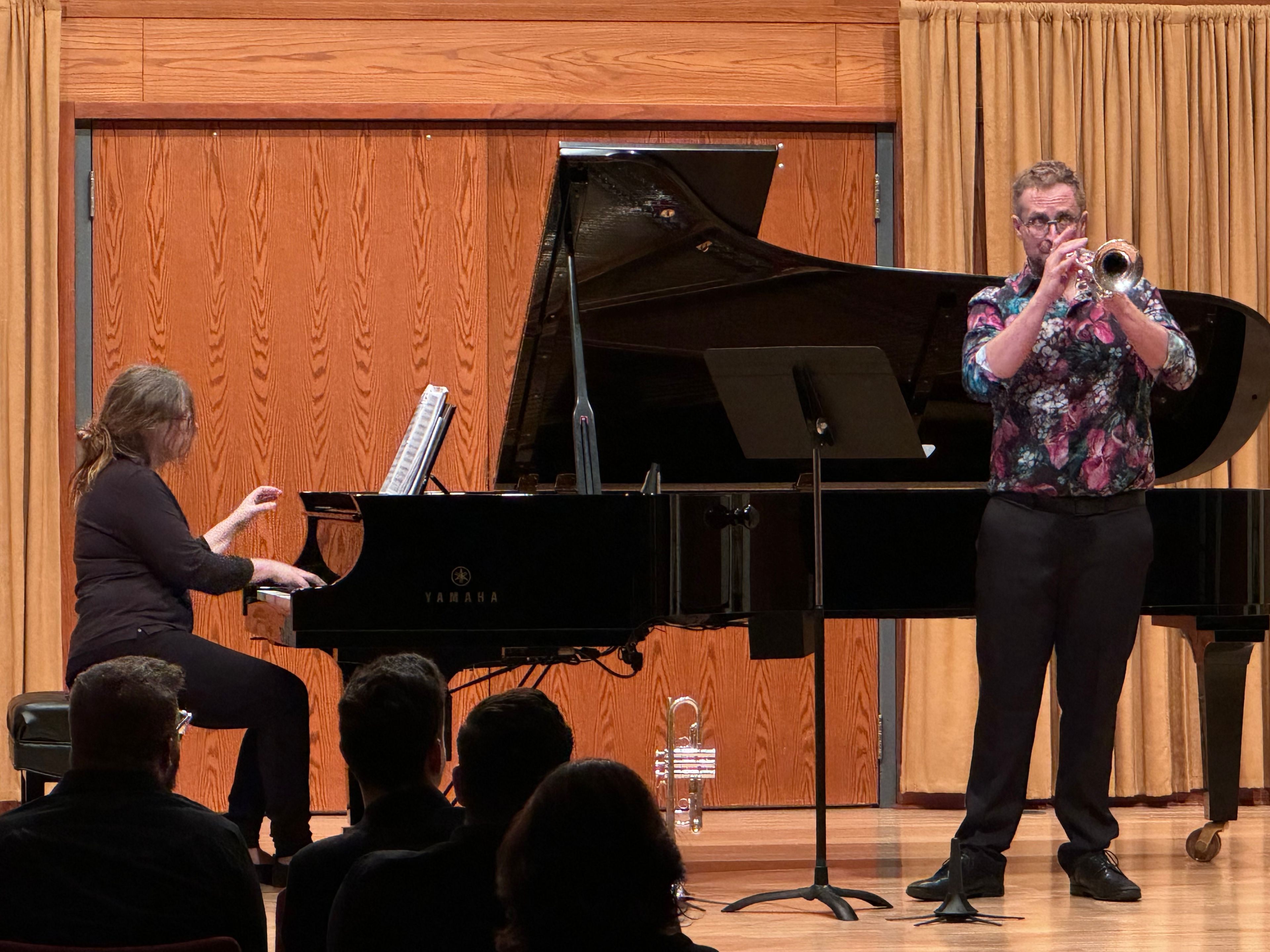Several shoppers walked through a hot building filled with a wide diversity of plant life. Flowers of every shape and color grabbed the customers’ attention.
Junior agribusiness horticulture major Olivia Kiefer answered a few of their questions before walking outside to prepare for the arrival of the mums.
Although most classes have ended, students at the Charles Hudson Greenhouse have a busy summer ahead of them.
“You’re going to pot mums and pot mums and pot mums for the second half of May and all of June and possibly into July,” Kiefer said. “And that’s all day everyday because there are 5000 of them.”
This is her third year working for the greenhouse.
“When I first started, my ultimate goal was to have a fruit and veggie farm, but I would also like greenhouse production,” Kiefer said. “I’ve come to really love this.”
Kiefer and the other students keep countless varieties of exotic and common plants healthy throughout the year. All of the plants must be grown, re-potted, fertilized, watered and treated with specific chemicals to avoid pests.
The greenhouse is made of three 4000 square foot houses, several outside areas and a space to pot and sell plants.
She hopes to make her own space in the agriculture market by utilizing the skills she learned through SEMO and the greenhouse.
“It’s more profit per acre. I wouldn’t have to go buy 1000 acres. I could just buy 25 acres. It’d be more labor, but it’s something that’s a little more feasible for me to do,” Kieffer said.
The mums Kieffer will be potting for months, arrived as plugs or adolescent plants in a small amount of dirt. The plants will have to be ready for the annual Mummas and Pawpaws festival in September.
The festival is the largest event held by the Charles Hudson Greenhouse each year.
Greenhouse manager Melissa Holmes ensures the event can go forward with careful planning.
“I’m always six months ahead,” Holmes said.
While there will be thousands of mums grown through summer and sold in the fall, it is significantly fewer than a decade ago when over 12,000 mums were ordered.
“With the economy, people are not spending as much on plants as they did before Covid,” Holmes said. “Before covid, people would buy flats and flats of annuals. Now, they might buy a few packs instead of a full flat.”
Despite the decrease in mums, there is still plenty to be accomplished before the start of the next semester.
Senior plant and soil science, agribusiness horticulture, and animal science triple major Taylor Cullum has worked at the greenhouse since last summer.
This summer, one of the biggest jobs he’ll be working is the cleaning and sanitization of the greenhouse.
Sanitizing the greenhouse is an important part of keeping the plants healthy,” Cullum said. “We have to clean up the floors constantly. That is algae buildup.”
The moist air and wet floors aren’t only a perfect habitat for exotic plants and algae, but also the creatures that eat them.
“Mealybugs,” Cullum said. “They’re a type of aphids and they’re born pregnant. They go crazy in greenhouses.”
According to the Missouri Botanical Gardens, the tiny, waxy bugs spread from plant to plant, often being carried by ants, and are difficult to control.
The students and staff in the greenhouse use Integrated Pest Management to keep plants safe from various insects.
“So, Identify the pest, see what the pest is attracted to, and know how to treat the pest,” Cullum said. “You have to make sure you’re not just putting a band-aid over it.”
Holmes and her staff of student workers are committed to fixing the problem and have decided they are not “putting a band aid over it.”
This summer, all of the plants and rolling tables will be removed from one of the three greenhouses. Then, the space will be sanitized from top to bottom.
Despite how much work is ahead, Cullum said he sees the value in completing the tasks.
“I started off as a novice, knowing nothing. And getting here, actually working with them, and being in the production side of it is valuable,” Cullum said. “And you have to know how to market a plant, too. Just because you produced something doesn’t mean someone is going to buy it.”
Most plants are currently discounted as part of the Memorial Day Sale at the greenhouse.
The greenhouse will be open to the public for students to purchase flowers or other greenery throughout the summer. SEMO students receive a 10% discount.


